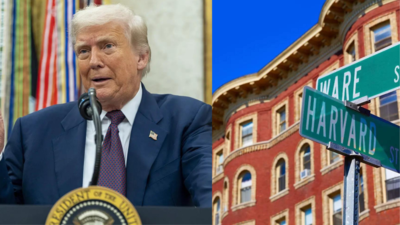ARTICLE AD BOX

In a move that underscores the mounting tension between student press freedom and federal immigration policies, the Harvard Crimson, Harvard University’s student newspaper, joined 43 other college newspapers on Wednesday in filing an amicus brief supporting Stanford University’s lawsuit challenging the Trump administration’s targeting of noncitizens for political expression.The case stems from Stanford’s student newspaper, The Daily, which sued the administration in August over efforts to deport or revoke visas of noncitizens who expressed pro-Palestine political views. The paper argued that such actions, justified under executive powers granted by the Immigration and Nationality Act, violated First Amendment protections by discouraging lawfully present noncitizens from contributing to campus discourse.
A chilling effect on student journalism
According to the August 6, 2025 complaint, several noncitizens asked The Daily to remove their names, quotes, or photographs from published articles, while others halted engagement with the paper entirely. Current and former staff writers also requested that their opinion pieces be withdrawn. The amicus brief, filed by the Student Press Law Center (SPLC), highlighted how these policies have suppressed contributions from international students and impeded student newspapers’ ability to report on political issues.
“Student journalists — especially noncitizen students — report declining participation, self-censorship, and withdrawal from public discourse,” wrote SPLC lawyer Matthew S.L. Cate in the 25-page filing. “Each of these results inflict harm not only on individual students but also on the broader educational and democratic mission of the student press,” The Daily reports. The brief’s signatories included the flagship papers of seven Ivy League schools, alongside 11 additional student publications signing individually.
It also cited examples from universities such as Michigan and North Carolina, where papers removed content or author names over fears of retaliation. Harvard Crimson noted a rise in takedown requests this spring, signaling the widespread impact of these federal policies.
Harvard Crimson emphasizes the stakes
Crimson President McKenna E. McKrell ’26 stressed the importance of protecting international students’ contributions to campus journalism. “Freedom of speech is vital to The Crimson’s work as a student newspaper. Our international staff members are essential contributors to this work, and deserve the very same speech protections their peers are afforded,” she said, TheHarvard Crimson reports.The Trump administration’s campaign against international students escalated in the spring, with the State Department revoking more than 6,000 visas by August, including 12 affiliated with Harvard, which were later restored. The Department of Homeland Security also attempted to block Harvard from enrolling international students by revoking its sponsorship through the Student and Exchange Visitor Program.
Harvard successfully challenged the move in federal court, temporarily halting the administration’s ban on international students on Harvard-sponsored visas.
High-profile cases fuel concerns
The brief also referenced individual incidents that intensified the climate of fear. Columbia University graduate Mahmoud Khalil, a pro-Palestine activist, was detained in March, and Tufts University graduate student Rumesya Ozturk was arrested near campus after coauthoring a pro-Palestine op-ed in The Tufts Daily. Both remain subject to potential deportation.SPLC argued these cases contributed to “a crisis of unprecedented scale” in student newsrooms nationwide, noting that international students have stopped submitting opinion pieces on sensitive topics and are increasingly reluctant to speak on record. Cate added, “Current policies that drive international students away or compel them to self-censor have stripped campus media of the diverse voices necessary to provide the public with a full and accurate understanding of their communities,” TheHarvard Crimson reports.
Legal pushback and the road ahead
The federal government maintains that The Daily lacks standing, describing its claims as based on “speculative injuries to its staff or interviewees,” and argued that presidential authority over immigration should supersede First Amendment concerns. Meanwhile, Stanford seeks summary judgment, requesting a court decision without a trial, according to TheHarvard Crimson.As the case unfolds, the involvement of Harvard Crimson and dozens of student newspapers signals a coordinated defense of campus journalism and the rights of international students. The outcome could set a precedent for how universities, student journalists, and noncitizen contributors navigate the intersection of free speech and immigration law.

 2 hours ago
4
2 hours ago
4









 English (US) ·
English (US) ·